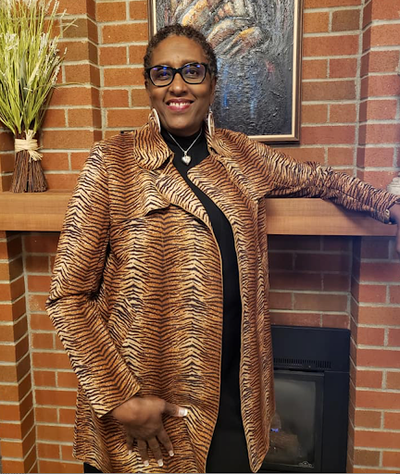October is a month where we pause to celebrate Black Excellence–a time to reflect on the achievements, sacrifices, and milestones of Black Americans whose lives have paved the way for justice and freedom. The Shades of Motherhood Network would like to celebrate an icon, Fannie Lou Hamer, a grassroots civil rights activist, voting rights champion, and fierce advocate for women’s reproductive justice. Her story is one of courage, resilience, and unwavering devotion to freedom for all.
Born in 1917 in Montgomery County, Mississippi, Hamer was the youngest of 20 children in a sharecropping family. Like so many Black families in the Jim Crow South, the Hamers faced systemic racism, economic oppression, and limited opportunities. Despite these hardships, Fannie Lou developed a tenacious spirit and a heart for advocacy that would later define her life’s work.
Hamer married Perry “Pap” Hamer in 1944, and the couple longed for children. However, in 1961, during what was supposed to be a routine surgery to remove a uterine fibroid, Hamer was subjected to a forced hysterectomy without her consent. A white doctor performed the procedure while she was under anesthesia–a common practice at the time in Mississippi, notoriously known as a “Mississippi appendectomy.”
This horrific violation left Hamer unable to bear biological children. She and her husband later adopted four children, but the forced sterilization remained a life-altering wound. Rather than silencing her, this injustice became fuel for her fire. Hamer transformed her pain into power, emerging as a bold voice not only for civil rights but also for reproductive justice.
Hamer’s activism began in earnest in 1962 after attending a meeting led by the Student Nonviolent Coordinating Committee (SNCC). Determined to exercise her constitutional right to vote, she volunteered to register despite the violent voter suppression Black Mississippians faced. Her attempt to register cost her her job, her home, and nearly her life–she was brutally beaten in jail for her activism.
But Hamer refused to be silenced. With her now-famous words, “I am sick and tired of being sick and tired,” she gave voice to the frustration of generations. She co-founded the Mississippi Freedom Democratic Party (MFDP) in 1964, challenging the all-white Mississippi delegation at the Democratic National Convention. Her televised testimony before the credentials committee exposed the brutal realities of racism in the South and remains one of the most powerful speeches in American history.
While Hamer’s work in voting rights is widely remembered, her advocacy for reproductive justice is just as vital to her legacy. She spoke openly about her forced hysterectomy, drawing attention to the widespread practice of sterilization abuse targeting Black women and poor women across the South.
At a time when few dared to speak publicly about reproductive rights, Hamer used her platform to condemn medical racism and demand autonomy over Black women’s bodies. She understood that true freedom included not only the right to vote but also the right to decide whether and how to bear children. Her bravery laid groundwork for today’s reproductive justice movement, which centers the voices of women of color.
Fannie Lou Hamer’s legacy is one of resilience and unwavering dedication to justice. As a wife, a mother through adoption, and a leader, she stood firmly in her belief that ordinary people could bring extraordinary change. Her story reminds us that the fight for equality is multifaceted–encompassing political, economic, and bodily freedom.
At The Shades of Motherhood Network, we honor Fannie Lou Hamer not only as a civil rights leader but also as a pioneer for Black maternal health and reproductive rights. Her courage reminds us that women of color are resilient, powerful, and necessary voices in the struggle for justice. Her advocacy compels us to continue fighting against systemic injustices that still impact maternal outcomes today.
We remain committed to reducing disparities in Black maternal health, supporting the systems that influence maternal care, and being a voice for the voiceless. As Fannie Lou Hamer showed us, speaking truth to power is the first step in changing lives.
Her legacy lives on–in every ballot cast, in every woman who demands reproductive justice, and in every community that rises to demand equity.
For more information about The Shades of Motherhood Network, visit theshadesofmotherhoodnetwork.org.
